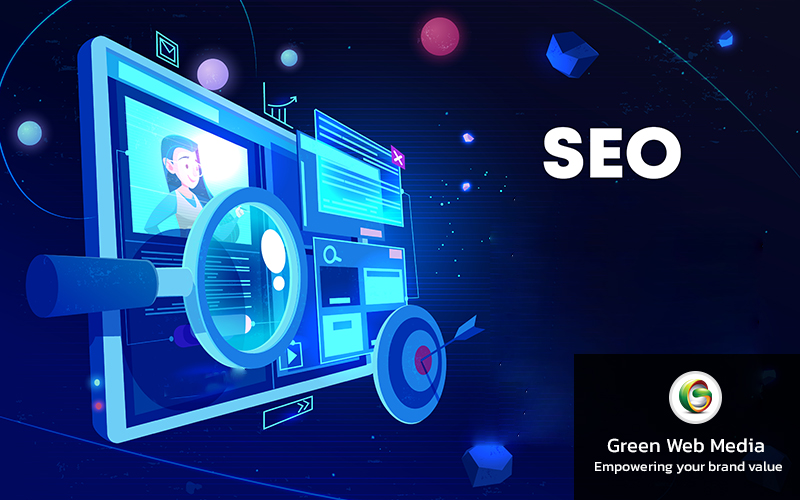AI and SEO – How to Get Ready for the Future of Search?

Search is no longer what it used to be. AI is changing how people find information—and how search engines decide what to show. Your website could be the best, but if it doesn’t speak to AI, it might never get seen.
In fact, 80% of consumers today depend almost entirely on AI-generated results for 40% of their searches.
That equates to lost clicks, leads, and sales. However, the most thrilling fact is that AI does not just change rules, but it also introduces new paths to victory. Once you get to know it, you can develop more quickly and reach more people.
The trick is knowing what is working and changing your content accordingly. The good news is, this transition presents new opportunities to grow. You just need the right strategy.
In this post, you’ll find out how to get your website and content ready. We’ll make everything simple and easy to understand, so you’ll have a clear idea of what to do.
What Is AI in SEO?
AI is a computer program that gets smarter over time. It assists search engines in providing improved results. Google and other search engines use AI now to determine what to show individuals. What this implies is that AI considers content, intent behind the search, user behaviour, and even the way people interact with pages.
AI enables search engines to know what a user actually needs. It looks beyond just words. It aims for meaning, value, and usefulness.
Over 1/3 of consumers are hoping that AI tools will be more useful in future to conduct research. This indicates that there is an increasing belief that AI is not only meant to deliver outcomes, but also transform how we find and utilise information.
Let’s say someone searches “best running shoes for flat feet.” AI is aware that they need support shoes. It will not provide any running shoes. It will try to display expert guides or product reviews that fit that requirement.
This is why writing quality content matters now more than ever. AI rewards pages that answer questions clearly and give value fast.
Understanding the Fundamentals – AI SEO, AEO, GEO, AIO
To stay ready for what’s coming, it helps to understand the new sides of SEO. These terms are becoming more common as AI changes how search engines work:
- AI SEO– Uses AI to optimize content and rankings efficiently. It recommends steps to take to improve site visibility.
- AEO- Answer Engine Optimization provides direct, concise answers to search queries. The responses appear on AI Overviews and Rich Snippets.
- GEO- Generative Engine Optimization helps AI chatbots like ChatGPT to cite your content to frame an answer for the query asked on their interface.
- AIO- Artificial Intelligence Optimization adapts content to be read by AI and LLM models. It balances SEO with natural, engaging writing.

The Impact of AI on SEO
SEO or search engine optimisation has always been a moving target. User behaviours evolve, and what is best practice today might be outdated tomorrow. But nothing has shaken SEO more than artificial intelligence.
In fact, 13% of the best-rated content on Google today is AI-produced. It is a clear sign that AI is not just a tool, but it is becoming the central aspect of content creation and optimisation.
Let’s discuss what this world of AI-driven SEO looks like now.
1. AI is Reshaping Keyword Research
The days are gone when you manually sift through keyword tools for hours. AI platforms today scan humongous amounts of data in seconds to discover keyword opportunities with real intent. Such tools not only provide keywords — they forecast trends, identify search patterns, and even recommend content groups that match user requirements.
Example: Surfer SEO, Semrush, and Frase tools leverage AI to provide keyword suggestions by search intent and competition.
2. Content creation made smarter with AI
Writing tools powered by AI have become ridiculously popular and advanced. While early versions produced generic fluff, today’s content generators (such as ChatGPT, Jasper, and Claude) can write well-tailored blog posts, meta descriptions, product pages, and so much more with striking fluency.
But it isn’t about having AI do all the writing. The winning combination is human + machine – the pace of AI and the detail, creativity, and experience of a human.
Pro tip: AI can be used to create initial drafts, outlines or reuse content, then refine it to give it personality and authority.
3. Real-Time SEO Auditing
Platforms driven by AI can now track and audit your site in real time. Rather than having to wait for monthly reports, you can get instant insight into broken links, slow-loading pages, or declining keyword rankings — and even be offered advice on how to correct them.
Highly popular tools such as Clearscope, Surfer SEO, and MarketMuse apply AI to score and compare content with the competition and give recommendations based on data.
4. Predictive SEO – Looking Ahead
The most powerful AI application in SEO is prediction. AI models can forecast which keywords are rising in popularity before they explode. This lets marketers create content before the trend peaks. This helps gain a serious first-mover advantage.
5. Challenges and Risks of AI
While AI holds enormous potential. However, it also comes with some new challenges to SEO:
- Risk of duplicate content from excessive use of generative AI
- Over-optimisation risk from mindless adoption of AI recommendations
- Sacrifice of originality in an ocean of automated writing
The solution? AI is meant to be used as a helper, not an autopilot.

How to Prepare for AI-Powered SEO?
To prepare yourself for the future of SEO, you should pay attention to four key areas. These are not complicated but significant.
1. Write Useful Content
Write content that is useful to people. Do not only concentrate on keywords. Keep in mind the wants of your reader. Put yourself through these questions:
- Does this answer a typical question?
- Is this content readable?
- Does this help someone solve a real problem?
Write in short paragraphs, simple words and use clear headings. Also, include examples where possible and ensure that your writing is fluent.
2. Understand Search Intent
Each search has an objective. There are individuals who desire to learn. Others are interested in purchasing. Understand the wants of your target readers. Then align your content with that.
Here is a brief overview of the various forms of intent:
| Type of Intent | What People Want | Example Search |
| Informational | To learn something | How to fix a slow computer |
| Navigational | To go to a specific website | Facebook login page |
| Transactional | To buy or do something | Buy shoes online |
| Commercial | To compare before buying | Best laptops under 40,000 |
Write your content according to the purpose of the keyword. This assists the search engines in viewing your page as the appropriate one.

3. Apply Clear Structure
Divide your content into sections. You should make use of headings, bullet points and lists. This will assist readers and AI to comprehend your content.
Also, provide summaries, FAQs, and answers to common questions. They can be displayed in featured snippets, which get more clicks.
4. Improve Page Experience
Google uses AI to measure how people feel about your site. Users will abandon your site quickly when it is slow or difficult to read. That damages your ranking.
To make your site better:
- Ensure that it loads quickly
- Use big and easy-to-read text
- Optimise it to work on mobile
- Avoid pop-ups that obstruct content
- Make the design simple and clean
These small details can count.
Focus on E-E-A-T – Experience, Expertise, Authoritativeness, Trust
E-E-A-T is one of the guidelines of Google. It implies that your information should be useful and reliable.
In order to enhance E-E-A-T:
- Provide actual experiences
- Demonstrate that you are familiar with the subject
- Link with trustworthy sources
- Include an author bio
- Provide reviews, feedback or actual data where possible
These are some of the signals that AI examines to rank content. The higher the trustworthiness of your page, the higher the possibility of ranking.
Conclusion
AI is changing how search works. However, you do not have to feel lost. All you need to do is focus on what counts most, useful and genuine content. Ensure that your site is user-friendly and fast. Know your audience, and provide what they require.
Make your content simple and real. Use tools freely, but don’t let them take charge. The intention should be to help readers. The more you do that, the more you will grow.

FAQs
1. Can AI uplift my SEO?
Yes, AI can assist you with research and keyword suggestions. However, you should write in your own words and your voice.
2. How often do I need to update my content to AI SEO?
Once every 6-12 months, you must review your key content. Revise facts, fix broken links and enhance structure.
3. Will SEO writers be replaced by AI?
No. AI can help, but people are still interested in real content by real people. The most important thing is good writing.






